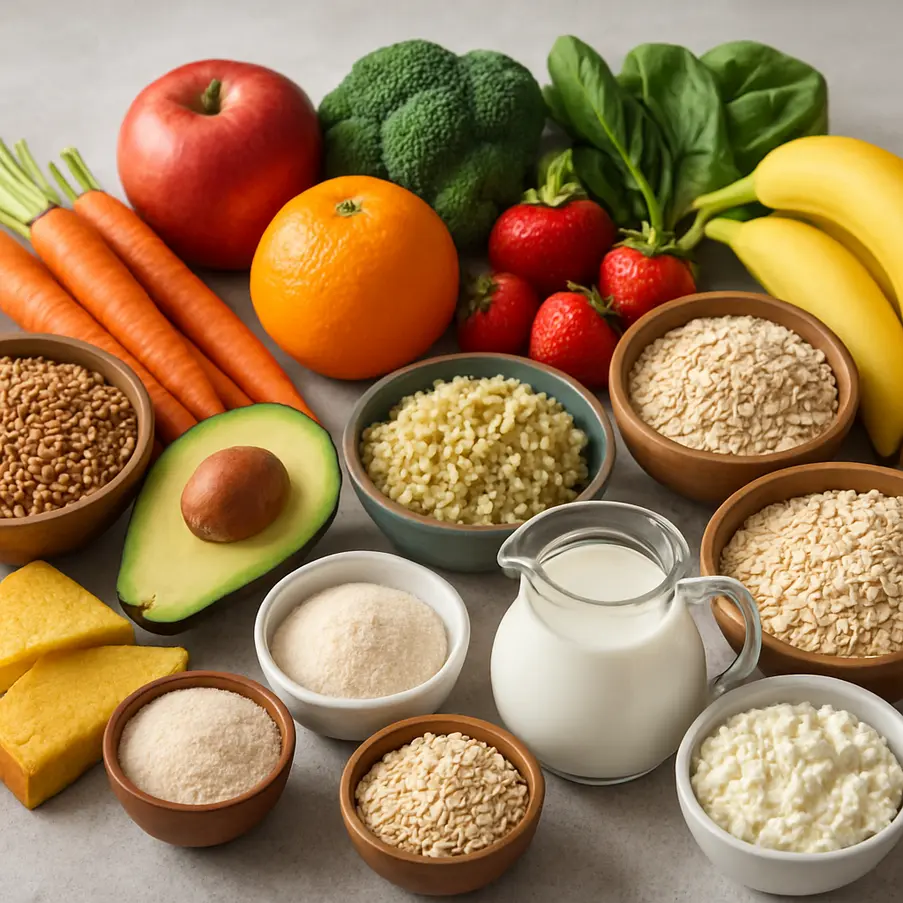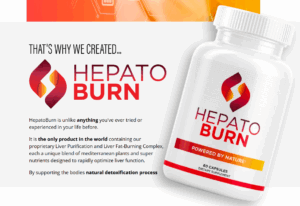Diet for Celiac Disease
Managing celiac disease requires a strategic approach, and embracing a gluten-free diet is a critical component. This dietary regimen is not just a lifestyle choice but a necessary medical intervention for individuals with celiac disease. By eliminating gluten-containing foods like wheat, barley, and rye, sufferers can alleviate symptoms and promote intestinal healing. This guide will explore the essentials of a gluten-free diet, providing valuable insights and practical tips to improve health outcomes for those managing celiac disease.
Understanding Celiac Disease
Celiac disease is a chronic autoimmune disorder that primarily affects the small intestine when gluten is ingested. Gluten is a protein found in wheat, barley, and rye, and for those with celiac disease, its consumption triggers an immune response. This response damages the villi lining the small intestine, leading to malabsorption of nutrients.
Early diagnosis and treatment of celiac disease are crucial. Without intervention, repeated exposure to gluten can cause long-term health issues. These may include severe malnutrition, osteopenia or osteoporosis due to calcium deficiencies, iron-deficiency anemia, infertility issues, and an increased risk of developing certain intestinal cancers.
Common symptoms vary widely among individuals. Some experience chronic diarrhea, while others might suffer from constipation or bloating. Fatigue is a typical symptom, often due to iron deficiency or malabsorption of other vital nutrients. Some people may experience dermatitis herpetiformis, a form of skin rash linked to gluten exposure.
Less understood, yet significant, are the neurological symptoms. Anxiety, depression, and migraines can be part of the condition’s spectrum. It’s imperative to monitor these symptoms, as they might not improve immediately after dietary changes.
Understanding the triggers, such as cross-contamination with gluten-containing foods, is vital for managing this disease. Gluten can hide in several processed foods and even non-food products, making vigilance essential. Learning to read and understand food labels can be a lifesaver for those navigating a gluten-free diet. For insights on decoding food labels, you might find useful information here.
Embarking on a gluten-free diet is not just about eliminating bread and pasta. It involves adopting a lifestyle, where meal planning and understanding potential sources of gluten are integral. Connecting with support groups can be exceedingly helpful for those newly diagnosed, providing both emotional support and practical tips.
In recognizing the broad scope of celiac disease’s impact, we underscore the importance of comprehensive care and management. By prioritizing a diligent gluten-free diet and monitoring overall health, individuals can lead fulfilling lives despite the challenges posed by this disorder.
Essential Guidelines for a Gluten-Free Diet for Celiac Disease Management
Adopting a gluten-free diet is crucial for individuals managing celiac disease. The autoimmune disorder prompts an intense reaction to gluten, a protein found in wheat, barley, and rye. Recognizing hidden sources of gluten in food items is essential.
Focus on whole foods like fruits, vegetables, meats, and gluten-free grains such as rice, quinoa, and buckwheat. Beware of processed foods, as many contain gluten as an additive or through cross-contamination during manufacturing. Reading ingredient labels carefully becomes second nature. Look for certified gluten-free products to ensure safety.
One of the biggest challenges in managing celiac disease is avoiding cross-contamination. It occurs when gluten-free foods come into contact with gluten-containing foods. Use separate utensils, toasters, and cookware when preparing gluten-free meals to minimize risks at home or when dining out. Communicate clearly with restaurant staff about your dietary needs.
Learning to interpret food labels is vital. Check for warning phrases like ‘may contain wheat’ or ‘produced on shared equipment with gluten-containing products.’ Familiarize yourself with less obvious gluten sources, including malt, modified food starch, and some stabilizers and preservatives. For further guidance on comprehending food labels, Understanding Food Labels and Nutrition Facts is a helpful resource.
Maintaining balanced nutrition is challenging but achievable. A gluten-free diet can sometimes result in deficiencies in fiber, iron, and certain B vitamins. Incorporate naturally gluten-free, nutrient-dense foods to compensate. Legumes, seeds, nuts, and leafy greens are excellent sources of essential nutrients. Fortified gluten-free breads and cereals can also help bolster nutrient intake.
Explore safe and delicious alternatives to common gluten-containing foods. Pasta made from chickpea or corn, as well as gluten-free oats, can make meals enjoyable and satisfying. Flour from almonds or coconuts is perfect for baking gluten-free treats, ensuring variety in your diet.
Navigating a gluten-free diet demands awareness, dedication, and a proactive approach to learning and adapting. By making informed choices, you can confidently manage celiac disease while maintaining a nutritious, balanced diet.
Hepato Burn Product
Challenges and Solutions in Adhering to a Gluten-Free Diet for Celiac Disease Management
Living with celiac disease means navigating food choices that profoundly affect your health. Sticking to a gluten-free diet can be daunting, especially in social settings like parties or family gatherings. It’s common to encounter situations where gluten-laden options are abundant: birthday cakes, sandwiches, or even appetizers at a wedding.
When faced with these challenges, preparation becomes your strongest ally. Always inform the host about your dietary needs in advance. Consider bringing your own dish to share, ensuring there’s at least one safe option. This provides peace of mind and allows you to enjoy the company rather than worrying about the menu.
Dining out brings another layer of complexity. Not all restaurants offer gluten-free options, and cross-contamination in kitchens is a genuine concern. Researching and selecting eateries with dedicated gluten-free menus can significantly reduce anxiety. Before visiting, check online reviews or call the restaurant to discuss their gluten-free options. An empowered dining experience often starts when you feel supported by the restaurant’s staff, understanding their preparation methods intimately.
Traveling introduces additional difficulties, from unfamiliar places to limited food availability. Plan by researching gluten-free accommodations and nearby restaurants. Packing gluten-free snacks ensures you don’t have to rely on uncertain meals in transit, giving you the flexibility to seamlessly explore without hunger pangs fueling frustration.
Another practical solution lies in mastering the art of reading food labels. Understanding components hiding gluten can save you from accidental exposure. To aid this, guides such as Understanding Food Labels and Nutrition Facts can be invaluable resources.
Remember, adapting to a gluten-free lifestyle does not mean social isolation or compromising enjoyment. Armed with these strategies, you can foster an environment that respects your health while allowing you to partake fully in life’s moments. Consistency and careful planning pave the road to confidently navigating each gluten-free scenario.
Long-Term Benefits of a Gluten-Free Diet for Celiac Disease Management
Maintaining a gluten-free diet for those with celiac disease offers remarkable long-term benefits. One of the most immediate and significant advantages is the improvement in digestive health. A gluten-free regimen allows the damaged villi in the intestines to heal, promoting better nutrient absorption and reducing symptoms such as bloating, diarrhea, and gas.
Beyond digestive relief, many individuals experience a noticeable increase in energy levels. This boost is often due to the enhanced absorption of essential nutrients, which had been previously compromised by gluten-induced damage. Restored nutrient absorption leads to improved physical vitality and mental clarity, allowing one to engage in daily activities with greater efficiency and enthusiasm.
Perhaps the most profound impact of adhering to a gluten-free diet is the overall enhancement of quality of life. Freed from the discomfort and unpredictability of symptoms, people can pursue hobbies, work, and social events without the constant worry of gluten exposure. This newfound freedom significantly alleviates stress and anxiety, contributing to better emotional and mental health.
However, it’s crucial to recognize the potential pitfalls of a gluten-free diet if not properly managed. Individuals may face an increased risk of nutritional deficiencies, particularly in fiber, iron, calcium, and certain B vitamins. This is where the importance of medical supervision and dietary planning comes into play. Regular consultations with healthcare providers or dietitians can ensure that nutritional needs are fully met.
For those exploring different dietary approaches, our comprehensive guide on balanced nutrition for optimal health provides valuable insights on maintaining a nutritious gluten-free diet. It’s essential to include naturally gluten-free whole foods like fruits, vegetables, lean proteins, and legumes to keep a balanced nutrient profile.
Embracing a gluten-free lifestyle does not only mean the elimination of gluten but also a commitment to making informed, health-focused dietary choices. With strategic planning and proper guidance, individuals with celiac disease can enjoy the long-term health benefits of a gluten-free diet while minimizing risks, ultimately leading to a more vibrant and fulfilling life.
Final words Diet for Celiac Disease
In summary, adopting a gluten-free diet is indispensable for managing celiac disease effectively. By carefully selecting foods and being vigilant about gluten exposure, individuals can lead healthier, symptom-free lives. The importance of community support and staying informed cannot be overstated. Thank you for reading, and I encourage you to explore other informative articles on our website for more insights into managing celiac disease and other health-related topics.




